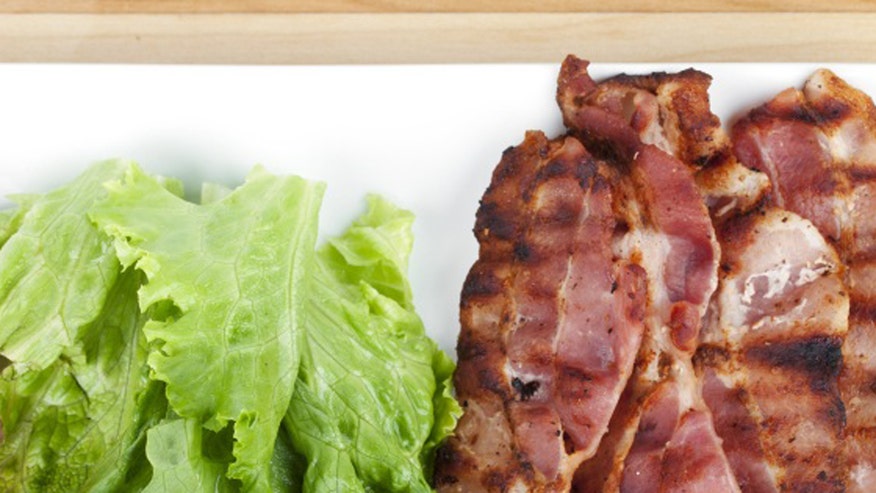 A study published last month in the scholarly journal Environment Systems and Decisions appears to contradict mounting evidence that meat farming is worse for the environment than growing fruits and vegetables.
A study published last month in the scholarly journal Environment Systems and Decisions appears to contradict mounting evidence that meat farming is worse for the environment than growing fruits and vegetables.
According to new research from a team of Carnegie Mellon University scientists, “following the USDA recommendations to consume more fruits, vegetables, dairy and seafood is more harmful to the environment because those foods have relatively high resource uses and greenhouse gas (GHG) emissions per calorie.”
In other words, the study says that following a mostly vegetarian diet has a more profound impact on climate change eating meat.
“Eating lettuce is over three times worse in greenhouse gas emissions than eating bacon,” said Paul Fischbeck, professor of social and decisions sciences and engineering and public policy at Carnegie Mellon, in a press release. “Lots of common vegetables require more resources per calorie than you would think. Eggplant, celery and cucumbers look particularly bad when compared to pork or chicken.”
The research team looked at the entire food supply chain--from growing, to processing and transporting food, food sales and service, household storage and use—to determine what impact each step took on resources in the form of energy use, water use and GHG emissions.
Eating the so-called “recommended healthier foods”—a mix of mostly vegetables fruits, dairy and seafood—increased the environmental impact in all three categories, with energy use shooting up by 38 percent, water use increasing by 10 percent and GHG emissions increased by 6 percent.
Though many outlets were quick to decry vegetarian diets as worse than a standard omnivorous diet—flying in the fact of pro-veg celebrities like Morrissey and, more recently, Arnold Schwarzenegger—the study’s author admitted there were a few caveats to make.
"We looked at what Americans eat — we're not trying to change people's preferences — we looked at the USDA guidelines and assumed people would look at them and eat more of what they like," Fischbeck told Business Insider.
The study didn’t compare a traditional American diet with a pure vegetarian one. It compared a a 3,800 calorie per day diet (that’s what the average American consumes) that meets the USDA’s guidelines for adding fruits, veggies, and fish to a healthier one—one that restricted the number of calories—but also met the agency’s recommendations.
As per the lettuce comment, Fishbeck says it’s important to note the per calorie context.
Eating 100 calories of lettuce would amount to multiple heads, which, yes take more resources and amount to more greenhouse gas emissions than eating 100 calories of bacon—which would be about two small slices. But there are plenty of protein and calorie rich vegan foods that have a lower environmental impact than bacon.
"Absolutely beans and nuts and grains are good," Fischbeck said.
But the biggest takeaway from the study should be that eating a “healthier” diet, which resulted in greater weight control, had a positive impact on the environment and reduced energy use, water use and GHG emissions from the food supply chain by about 9 percent. The UN Food and Agriculture Organization's average minimum daily requirement is 1,800—an amount which the average American far exceeds.

No comments:
Post a Comment